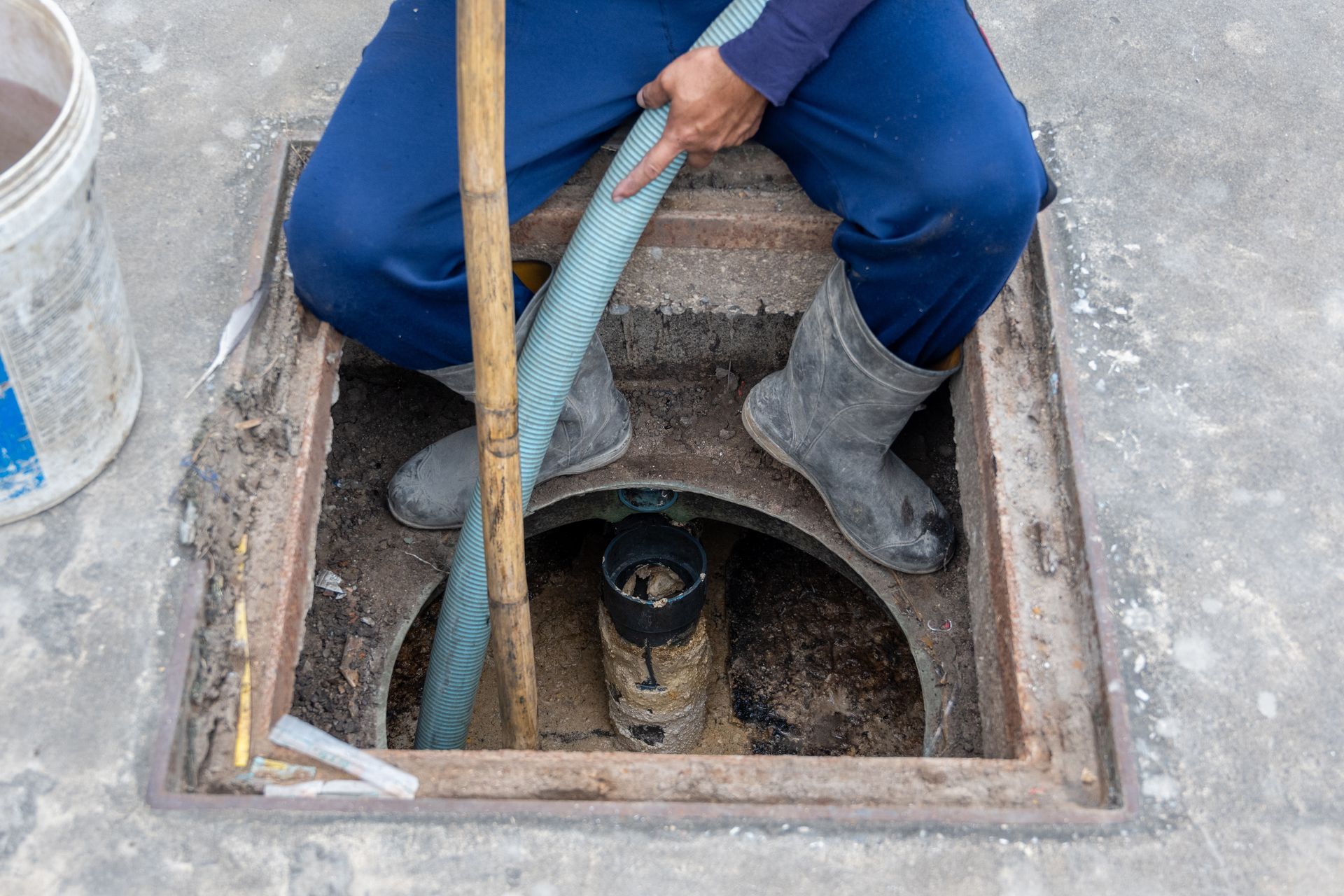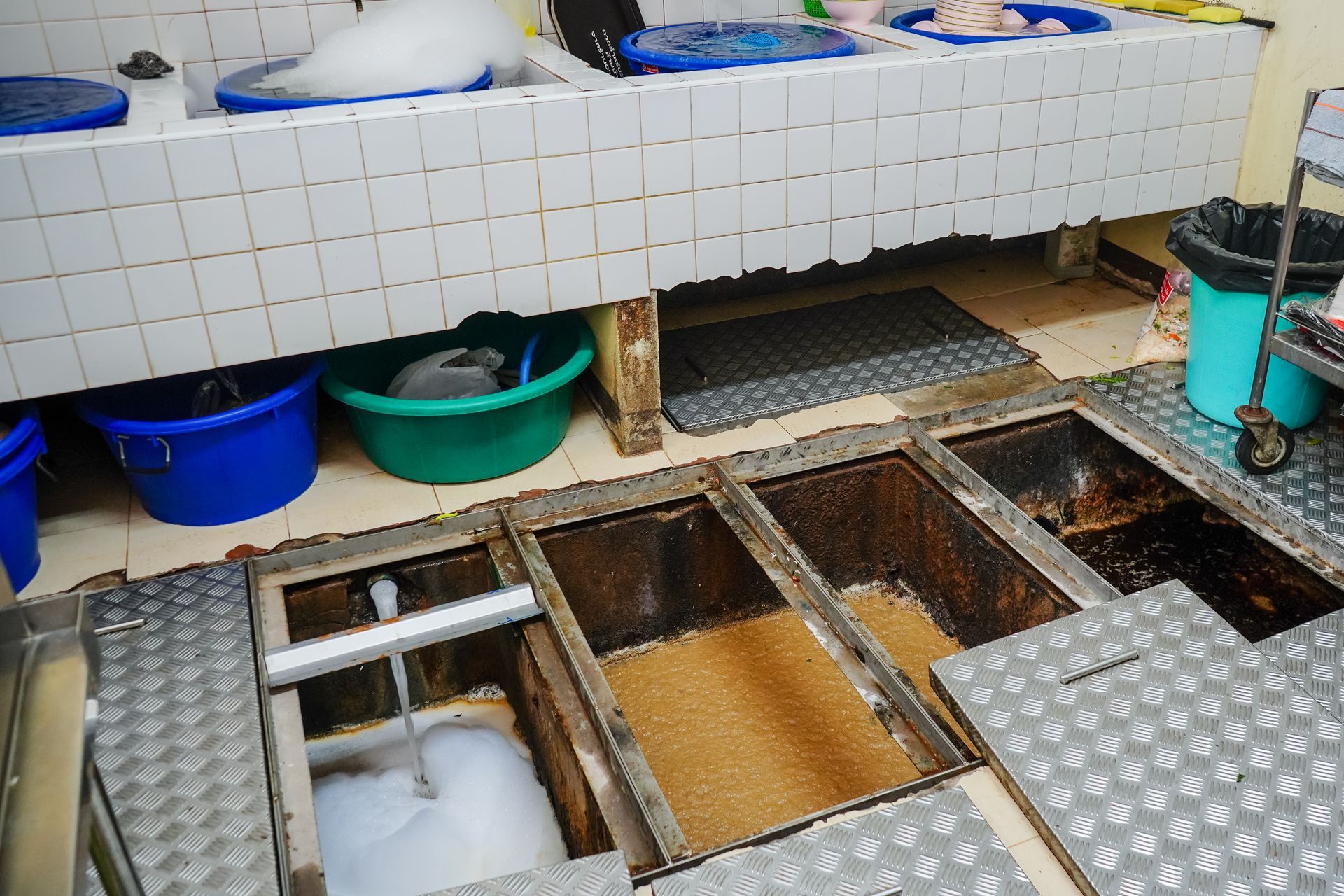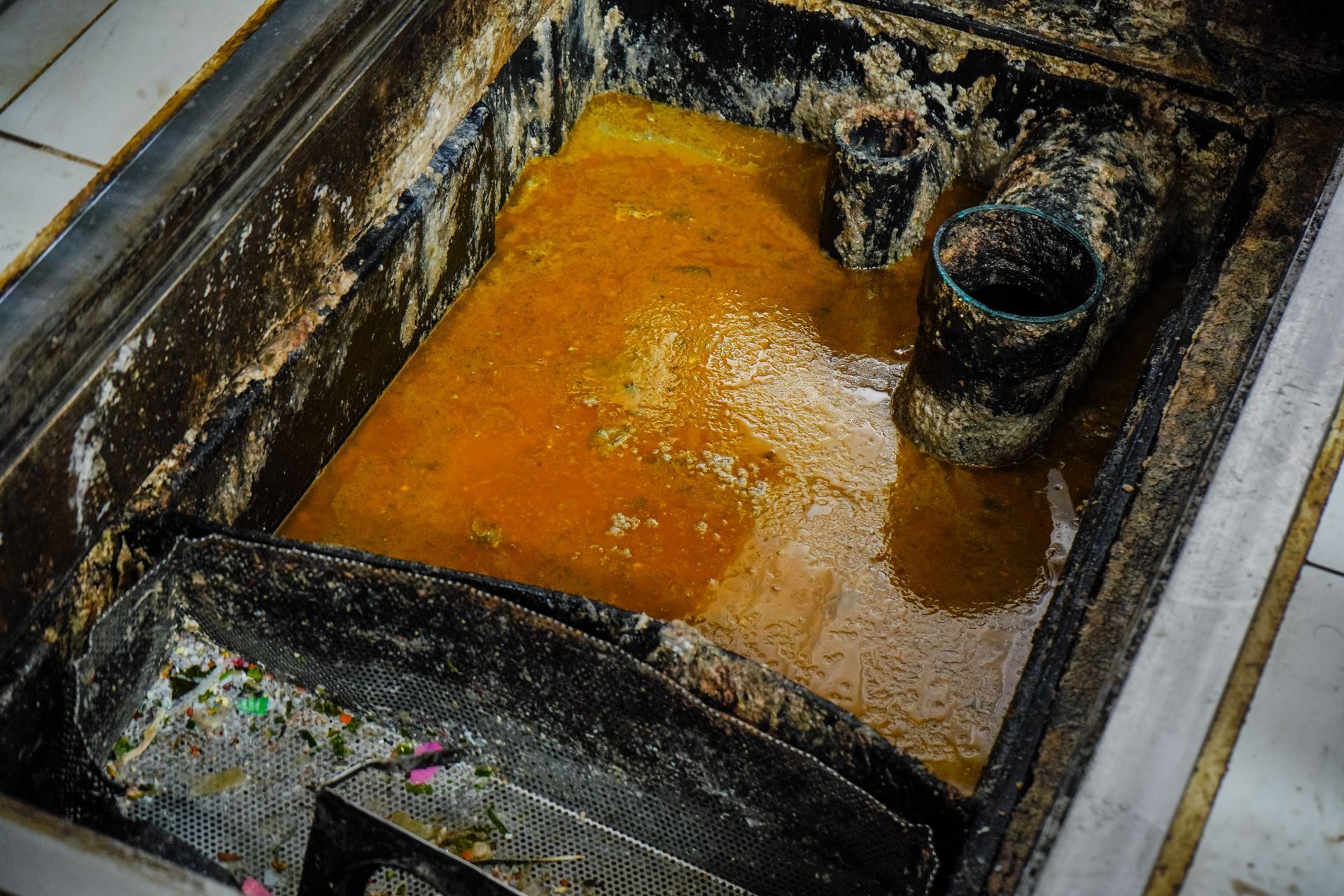What Happens When a Grease Trap Fails Inspection Under Atlanta’s Watershed Rules?

Grease trap inspections in Atlanta are carried out by the city’s Department of Watershed Management (DWM) under its Fats, Oils and Grease (FOG) program. These inspections are routine, unannounced and backed by the city code.
They’re designed to verify that a facility is maintaining its trap on a consistent schedule, not exceeding the maximum FOG volume, and is not discharging excessive grease into the sewer system.
Most food service businesses and facility operators understand that failing one of these inspections creates operational risk, fines and in some cases business license exposure, but not everyone is clear on what happens after they’ve failed an inspection.
How the Inspection Process Works
Food service facilities in Atlanta are typically inspected once or twice per year depending on size, risk tier and past performance. These unannounced inspections are conducted directly by Watershed’s FOG compliance inspectors.
The inspector will assess both physical trap conditions and supporting documentation. This includes checking the trap’s contents, the percentage of floating grease and settled solids, the presence of required flow restrictors, and inspection ports and plumbing configuration.
They will also review service manifests to ensure cleaning frequency aligns with city code: indoor traps must be cleaned at least every 14 days and outdoor interceptors every 90 days. Even if your traps are currently in compliance, you could face penalties if you can’t show that your operations have had the minimum required cleanings performed.
Many high-volume operations require more frequent service to remain compliant with the 25 percent rule. If the combined volume of FOG and solids in a trap equals or exceeds 25 percent of its total liquid depth, it’s considered noncompliant. Even if the trap appears to be functioning, exceeding that threshold is enough to fail the inspection.
Other Triggers of a Failed Inspection
While exceeding the 25 Percent Rule and not having the manifests to show you’ve complied with the cleaning frequency requirements are the most common failure causes, others include:
- Recent plumbing alterations that bypass the trap or allow for cross-contamination
- Traps sized incorrectly relative to fixture load or kitchen volume, particularly after kitchen modifications or business changes
- Use of unapproved emulsifying agents or additives
Businesses change, and normally compliant operations can run afoul of inspectors by failing to consider how those changes affect their grease systems.
What Happens After You Fail
When a trap fails inspection, the city issues a Notice of Non-Compliance. This document outlines the specific violation(s), corrective steps required and the deadline for resolution. In nearly all cases, facilities are given a window of time, usually up to 30 days, to correct the issue before further penalties apply.
A $100 re-inspection fee is charged per unit. That fee is non-negotiable and applies even if the issue is minor or corrected quickly. The re-inspection is scheduled automatically, and the facility must be in full compliance by the time it occurs.
Depending on the violation, you may also be required to submit additional documentation. This often includes cleaning manifests, photographs or confirmation from a licensed hauler or plumber that the issue was addressed.
Consequences of Noncompliance
Failing to resolve the issue within the required time frame results in escalated enforcement. That can include:
- Daily fines for unresolved violations
- Suspension of the FOG permit, which affects legal operation
- Referral to the Office of Buildings, which may place a hold on business license renewal
- Triggering a wastewater impact fee if the violation leads to documented system interference or overflow
- Increased inspection frequency and future scrutiny
- Negative recordkeeping that affects status with city departments, landlords or facility investors
Repeated failures or unresolved citations make a facility more visible across departments. If the issue reaches the threshold of being deemed a public nuisance, it can be referred to legal enforcement.
How Most Facilities Resolve It
The typical corrective sequence after a failed inspection includes:
- Scheduling an immediate full trap cleanout
- Gathering and submitting manifests documenting the service
- Verifying that the cleaning interval aligns with usage volume going forward
- Addressing any infrastructure or sizing issues
- Making sure logs are maintained and accessible on-site
- Preparing for re-inspection by double-checking trap condition and documentation
Owners of multi-location operations may choose to audit all traps if locations share vendors or processes and one failure stems from vendor error.
In other words, if your grease trap cleaning company dropped the ball and you suffered the consequences, it’s probably time to look for a different company. Southern Green Industries is always prepared to provide emergency one-off grease interceptor cleaning, help businesses enact corrective measures, and ensure they don’t experience compliance issues in the future.
Staying Clean After a Citation
Once a facility is cited, it’s often placed into a higher-risk tier. That means increased inspection frequency and less tolerance for technical noncompliance. Owners who are worried about compliance, or those who have failed inspections, should keep in mind:
- It’s not always enough to schedule just the minimum required grease trap cleaning frequency, particularly for high-volume businesses.
- Most operators schedule cleanings based on their actual kitchen load, not the code-defined frequency.
- Manifests should be archived for at least three years, and operators should be able to produce them on demand.
Periodic reassessment of trap sizing, location and cleaning frequency is part of staying ahead. If your food service business, franchise locations or facility needs dependable grease interceptor servicing in Atlanta, call Southern Green Industries at (404) 419-6887.
Recent Blog Posts
Contact us Today for a FREE Quote
We are committed to making grease trap cleaning and fryer oil recycling as clean and easy as possible. If you’d like to learn more about our services or get a quote, give us a call at (404) 419-6887.



